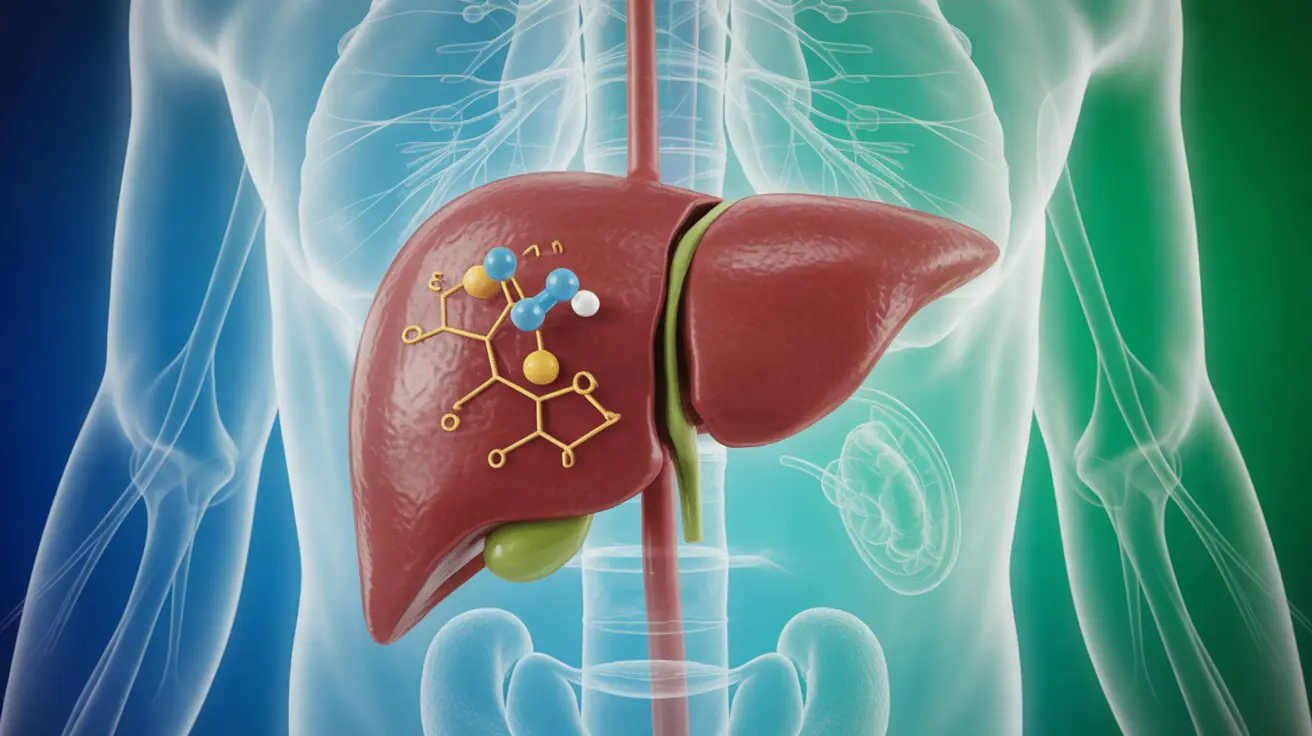If you're taking tramadol for pain management, understanding its potential effects on your liver is crucial for your health and safety. Tramadol is an opioid pain medication commonly prescribed for moderate to severe pain, but like many medications, it can impact liver function in certain circumstances.
This comprehensive guide explores the relationship between tramadol and liver health, including potential risks, safety considerations, and important warning signs to watch for during treatment.
How Tramadol Affects the Liver
When taken as prescribed, tramadol is primarily processed by the liver through various metabolic pathways. The liver breaks down tramadol into its active components, which then provide pain relief. Under normal circumstances and proper dosing, this process typically doesn't cause significant liver stress.
However, the liver's involvement in processing tramadol means that certain situations can increase the risk of liver-related complications.
Risk Factors for Liver Problems
Dosage and Duration
The risk of liver problems can increase with higher doses or extended use of tramadol. Following your prescribed dosage is essential for minimizing potential liver complications.
Pre-existing Liver Conditions
People with existing liver disease or reduced liver function may process tramadol differently, potentially increasing the risk of complications. Healthcare providers typically adjust dosing for these patients.
Dangerous Combinations to Avoid
Several factors can significantly increase the risk of liver problems when taking tramadol:
- Alcohol consumption while taking tramadol
- Combining tramadol with other medications that affect liver function
- Taking higher than prescribed doses
- Using tramadol with certain over-the-counter pain medications
Warning Signs of Liver Problems
Being aware of potential liver problem indicators is crucial. Watch for:
- Yellowing of the skin or eyes (jaundice)
- Unusual fatigue or weakness
- Dark urine
- Light-colored stools
- Upper right abdominal pain
- Unexplained nausea or vomiting
Safe Use Guidelines
To minimize liver-related risks while taking tramadol:
- Always follow prescribed dosages
- Inform your healthcare provider about any existing liver conditions
- Avoid alcohol consumption during treatment
- Report any concerning symptoms promptly
- Attend regular check-ups as recommended
Frequently Asked Questions
Is tramadol bad for your liver when taken as prescribed?
When taken exactly as prescribed, tramadol typically doesn't cause significant liver damage in people with healthy liver function. However, regular monitoring by your healthcare provider is important to ensure continued safety.
What are the risks of liver damage from taking high doses or long-term tramadol?
Taking higher than prescribed doses or using tramadol long-term can increase the risk of liver damage. Excessive doses can overwhelm the liver's processing capacity, while prolonged use may lead to cumulative stress on liver function.
How does pre-existing liver disease affect the safety of using tramadol?
Pre-existing liver disease can affect how the body processes tramadol, potentially increasing the risk of complications. Healthcare providers typically adjust dosages and monitor these patients more closely during treatment.
Can mixing tramadol with alcohol or other medications increase liver damage risk?
Yes, combining tramadol with alcohol or certain medications can significantly increase the risk of liver damage. The liver must process both substances simultaneously, which can lead to increased stress and potential injury.
What symptoms indicate liver problems that require medical attention while on tramadol?
Seek immediate medical attention if you experience yellowing of the skin or eyes, severe fatigue, dark urine, light-colored stools, upper right abdominal pain, or persistent nausea and vomiting while taking tramadol. These could indicate liver problems requiring prompt evaluation.




